Cavan Bakery in Walton-on-Thames has set itself the ambitious target of doubling its turnover to £10m by the end of next year.
Rolling out new products, winning more wholesale customers, and expanding its shop estate have an important role to play in helping the 94-year-old craft bakery achieve its goals, but possibly not as important as its new, purpose-built 15,000 sq ft factory.
British Baker sat down with owner and CEO Jeff Greenall and managing director Nicky Taylor at the new site to find out more about Cavan’s latest operational improvements and future plans.
Built for the future
Space is an obvious advantage of the new site located in an industrial estate – its more than three times that of Cavan’s previous bakery, which was about a mile down the road.
The building started out as an empty shell, which allowed Greenall to design the whole site from scratch with an eye to futureproofing it as well.
Cavan runs production 24/7 to maintain supply to its 13 shops across Surrey and southwest London, as well as to more than 100 wholesale customers including local cafes, restaurants, and farm shops. Over 80,000 items are produced on site per week, ranging from the savoury likes of sandwich loaves, sourdough, speciality breads, baps, and rolls, to a sweet selection of buns, pastries, and cakes.
The business left behind a 48-tray gas oven at its old site, instead installing an electric rack oven that offers better efficiency, along with another deck oven, additional pastry brakes, and an automatic doughnut fryer. A new eco-deck oven was about to be purchased at time of interview.
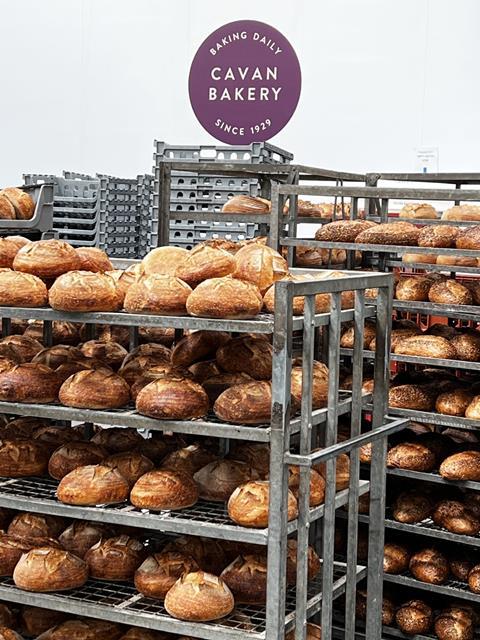
A walk-in fridge and freezer, and a large retarder room, helps store product prior to baking for easier scheduling. “The equipment we’ve got will see us through quite a lot of growth, and there’s not much more we really need,” comments Greenall.
Installations of proper dust and oven extraction has afforded a clean and safe working environment. Meanwhile, advanced climate control has eliminated incidents of staff “getting all hot and bothered”, especially when working with ovens during the warmer months, and the canteen is also air-conditioned with comfortable sofas and lunch and dinner provided.
“It’s a separate area where they can go and they can just relax for their break,” proclaims Greenall, maintaining that the clean and cool atmosphere helps with morale. “I think it was really important that we have a nice working in environment,” he adds.
Heading upmarket
Greenall took over the business 23 years ago with his wife Sarah Cavan, who is the granddaughter of founder David. Back then, says Greenall, the bakery made mainly standard white, brown, and wholemeal loaves. “Now, it’s all sourdoughs,” he notes.
“There’s no point us trying to compete with other factory products or mass-produced products”
The bakery produces eight sourdough lines a week and is evolving its sandwich offering to embrace more premium-end carriers like focaccia and ciabatta. Pastries tend to outsell traditional sweet treats such as Belgian buns, and the cake range has been reduced from around 30 varieties to 10.
“There’s no point us trying to compete with other factory products or mass-produced products,” asserts the CEO. “We’ve got to be premium end. We’ve got to make sure all our ingredients are the very best. We want people to go to Cavan Bakery and think ‘wow!’”
Taylor highlights Cavan’s shift towards viennoiserie, which she claims are “really in a different league from supermarket versions”.
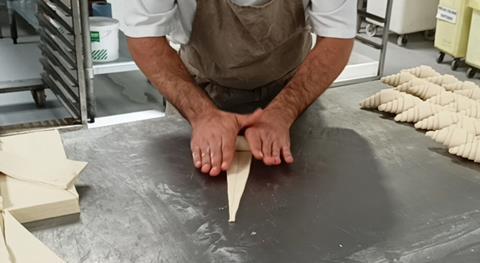
The almond croissant is lauded as Cavan’s bestseller, made with French butter, and laminated by hand. Sausage rolls, doughnuts, and gingerbread men also remain highly popular.
Greenall says they have some really passionate staff in the bakery, who love making new things for them to try. Examples of recent NPD include a chorizo sausage roll and a caramelised onion & spinach pastry. A nod to the firm’s sustainability credentials also comes in the form of babka loaves made from croissant dough scraps, with varieties including Pesto & Cheddar and Nutella & Hazelnut.
Taylor also reveals that Cavan conducts “a lot of field tests” to source inspiration for new products. This includes bakery visits during holiday trips abroad while “keeping an eye on what’s happening in London, which is the leader in terms of innovation”.
Labour pains
Finding people to drive innovation in the bakery remains an issue, as Greenall admits recruitment is definitely the area of most concern. “It’s absolutely relentless,” he maligns. “We’ve got two people who spend all day, every day recruiting, and probably for every five interviews they organise, only one person or two people will turn up. Then they decide they don’t want to work after all or just want a part time job for a few hours a week.”
Almost everything at Cavan is made by hand. “We don’t use a lot of machinery,” adds Greenall, “so ultimately, our growth will be [driven by] labour.”
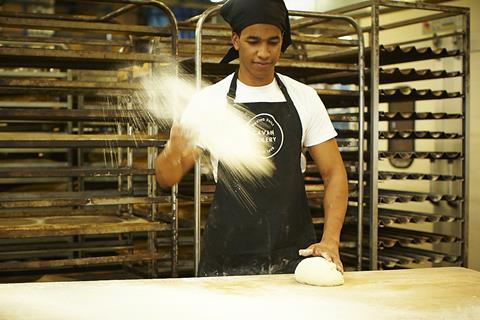
Wages are also a massive challenge for Cavan with bakers realising they are in demand and “demanding more money all the time”. The increases in payroll, coupled with rises in costs of energy, ingredients, and packaging, has “really squeezed margins”.
Taylor notes that there is “definitely still a skill shortage”. Cavan currently partners with Richmond Work Match, a local council-run employment service, to find new workers and is also looking into apprenticeship programmes.
“We’ve worked with local agencies, but we’re actually trying to bring people in at an earlier stage and training them in exactly our way of doing things and our standards,” she says.
“It’s the same in the shops, it’s not just in production. There’s been a huge reduction in the amount of people available in the workforce, mostly post-Brexit, but then there’s also been this shift in working attitudes. More people want to work part time,” Taylor adds.
Future focus
Greenall expresses no intention of venturing into supermarket retail and says Cavan wouldn’t be giving much focus to online sales as it did not give customers the added value enjoyed from walking into one of their physical shops. “It’s not just a pleasant shopping experience, you have that human contact too,” he adds.
“We have very tight guidelines on where to open shops and if it doesn’t meet those guidelines, we won’t open even if it looks fantastic”
The CEO didn’t want to reveal too much about his current plans to expand the shop estate but did note the business has added two locations in the past 12 months and were presently in talks with a couple more. “I kind of hoped we’d hit 20 shops this year,” he says. “We probably weren’t expecting the cost of everything to go through the roof – fuel, power, all the wages.”
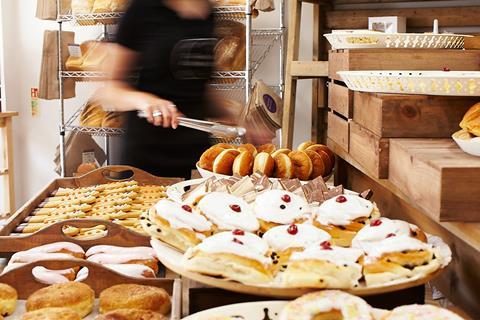
Greenall admits he would still like to get to 20 shops within the next 18 months, while confirming that his original estate target of 100 remained an ambition. “We have very tight guidelines on where to open shops and if it doesn’t meet those guidelines, we won’t open even if it looks fantastic,” he affirms, confessing to complete disaster of a shop opening a few years ago when ignoring this policy.
Cost control
The executives say the business has absorbed a lot of the rising costs due of late, but it has rolled out some prices increases at shops but not in wholesale this time around. “We’ve got to make a profit,” notes Greenall. “We’ve got to get that margin back to the 15 to 20%. There’s no point in us being in business if we’re going to make 5%.”
Wholesale to foodservice customers, which was “basically wiped out” during the pandemic, has recovered well to currently account for around 15% of its total business.
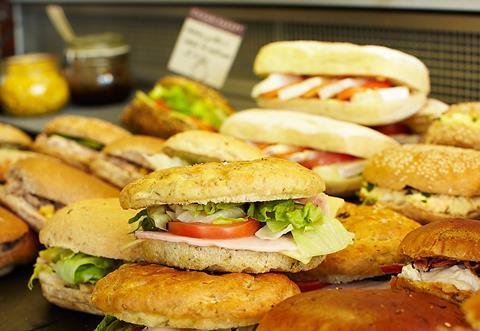
An important job for Greenall and Taylor now is to establish more relationships with a selective range of high-end operators that appreciate the quality of bakery products they deliver. Recent supply deals include The Lensbury Club, a health and wellness centre in Teddington, and Garson’s Garden Centre, which operates sites in Surrey and Hampshire.
Taylor also highlights the responsibility to their workforce to keep them in continued employment. “That means that in order to pay them decent wages, we have to pass on some of that cost in the product to the customer,” she says.
With everything else going up, Greenall says people will likely accept price hikes in their bakery offerings. “As long as the quality is still there, I think we’re OK,” he concludes.



















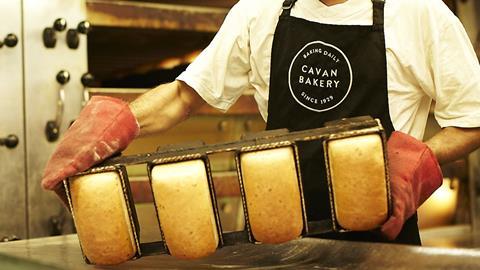

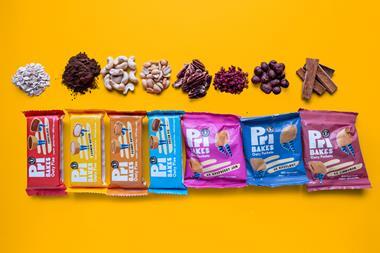

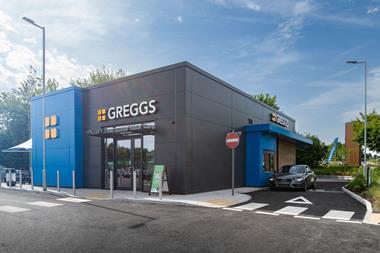
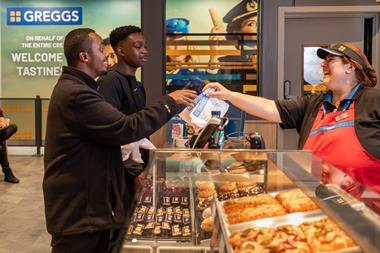
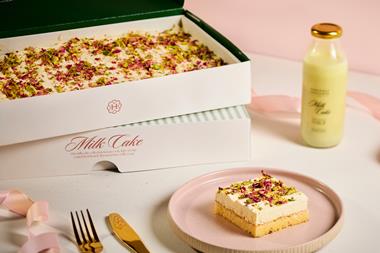
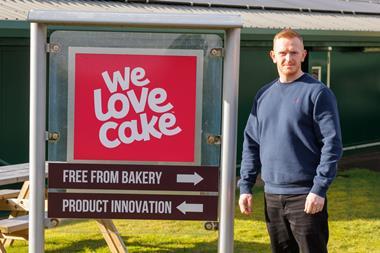
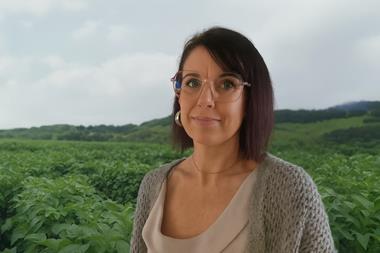

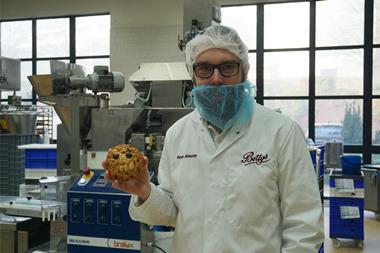

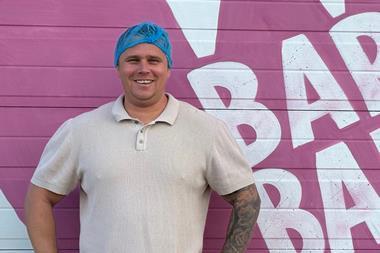

No comments yet